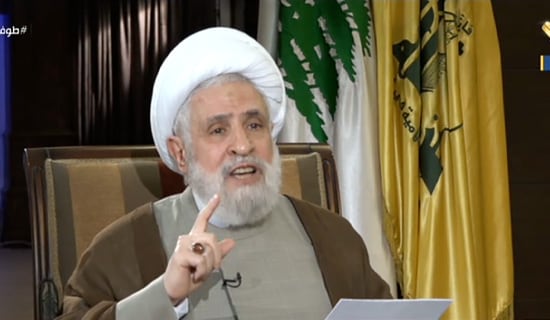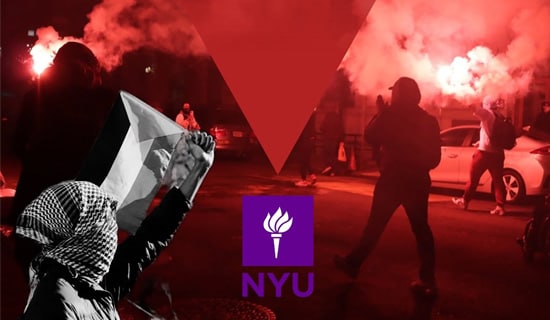Ayatollah Jalal Al-Din Taheri, the Friday preacher of the city of Isfahan, recently announced his resignation from the post he had held for over three decades. He explained that his resignation was in protest of Iran's human rights violations, the regime's failure to meet the people's expectations of the 1979 Islamic Revolution, and the harsh situation of unemployment, poverty, the spread of prostitution, illegal drug use, and AIDS. Ayatollah Taheri's announcement came on the eve of the anniversary of the 1999 student riots, which had stirred up the country and been harshly suppressed at the time by the regime. [1]
Ayatollah Taheri's Letter of Resignation
Ayatollah Taheri's letter of resignation, which appeared in the press, addressed five main points:
I. The Regime's Failure to Live Up to the Public's Expectations
"…For 23 years the nation has suffered, while many exploited their power for political and financial gain… Is this what we promised the oppressed? ...How much longer will we be able to repeat the same speeches to the public, and organize meetings and conferences… How long will neglect, ignorance, and [drug] addiction [continue]? Now, when the Shah [Pahlavi] and America no longer rule this country, why do the [rulers] not listen to [our] criticism about the misery, the flaws [in the regime], and the problems we are experiencing?…"
"The great catastrophe of the flight from religion, disillusionment, unemployment, inflation, poverty, the deepening of the disparities between the classes, [economic] stagnation, and the drop in state revenue, the sick economy, and administrative corruption… the embezzlement and bribery and absence of an effective solution [to all these]… have tragic consequences, and each moment they threaten… the state and the life of the nation…"
"We have failed to solve the state's many problems through boasting, lies, violating human rights, chasing after factional interests, and spreading empty slogans. Our main failures are not maintaining the rule of law, the activity of irresponsible non-civilian institutions, the presence of mafia-like groups in the [political] arena, the restrictions placed on the Majlis [parliament], and more." II. The Security Forces are Responsible for Iran's Bloody Events
Referring to the murders of intellectuals and politicians in 1998 and during the 1999 student dormitory incident at the University of Tehran which led to rioting across the country, Ayatollah Taheri accused plainclothes security forces of having direct responsibility for three events: "The agents caused the disgraceful and ugly events on the university [of Tehran] campus [in 1999]. These agents murdered innocent people in an episode of serial murders… What did they achieve besides tarnishing the image of the Islamic [regime] system [and its image] in the international arena?"
III. Criticism of Clerics and Their Exploitation of Islam
"…Patrons of groups with clubs on their shoulders… claw their way through the religious ranks and through the people's beliefs, rule with cruelty, and hasten to the political arena. They want to wed violence to religion, and defile all that is holy. [These] fascist[s]... who link ignorance and insanity to the centers of the regime, do whatever they want, throw off all restraints, and go unpunished by the Judiciary and untried by the law. They set religious rulings, and are also philosophers, muftis, and judges. They do what they like and rule as they please…"
IV. A Call for Ayatollah Montazari's Release
Ayatollah Taheri called for the release of Ayatollah Montazari, once designated Ayatollah Khomeini's successor, who has been under house arrest since 1996 for criticizing the Islamic regime.[2] "The unjustified tragedy of the reactionary and inhuman incarceration of the religious jurisprudent [i.e. Montazari] has grave results and a shameful end," he wrote. Ayatollah Taheri warned Supreme Leader 'Ali Khamenei that his regime was becoming illegitimate in the eyes of the public: "A regime may hold [if it] is heretical, but not if it is oppressive."
V. Bemoaning the Degradation of the Clerics' Status
Ayatollah Taheri discussed the decline in the status of clerics. "The leading Shiite clerics have [always] both policed and supported the regime.[3] The clerics have always been the guardians of the people, and the nation has always placed its trust in the leading religious jurisprudents.[4] The clerics were a stronghold of the state's strength… This was the situation from [Ayatollah] Qalimi to [Ayatollah] Khomeini. Woe is us… We are filled with sorrow witnessing the decline of the status of clerics today and the degradation of the status of religious jurisprudents! [We] are sorrowful and pained that the steadfast fortress of religious jurisprudents of the Shi'a is being devoured at the hands of those who start riots in the political arena, and at the hands of the clowns on the dais of leadership, who vex and abuse [the population]…"[5]
The Reformists React
Ayatollah Taheri's letter sparked political unrest. In a letter signed by 125 Majlis members expressing their solidarity with him, they wrote: "… You are considered to be among those eminent clerics who have remained righteous and have not exploited their power. We hope that your comments will be heard [by] the [regime's] upper echelons and that the rights of the people will be upheld."[6]
Iran Islamic Participation Front (IIPF), the political faction of the majority of Majlis's reformists, also published a statement supporting Ayatollah Taheri's move: "For years the patriots and true supporters of the Islamic [regime] system [i.e. the reformists] have complained about the top officials in one way or another. [But] no one ever bothered to notice their demands. Today, they see their aspirations materialized in [Taheri's] move."[7]
The Conservatives React
Once they understood the intensity and ramifications of the crisis, the conservative circles moved immediately to neutralize it. A few hours after Ayatollah Taheri's letter was released, the Supreme National Security Council issued a sweeping order banning any discussion of the affair in the media. However, the Nourouz daily reported this development in bold black headlines, under which appeared a notice that they were forbidden to publish the story by order of the Security Council. A closure order was issued against the reformist newspaper Azad (Freedom), which defied the Security Council's order.[8]
The council's order applied only to reformist papers; it took no steps against conservative papers, which discussed the matter in depth.[9] The Kayhan daily wrote that Ayatollah Taheri's letter was fabricated: "Anyone well-versed in Ayatollah Taheri's writing style has no doubt that this letter was not written by him and that some of the claims raised are not his ideas… It would appear that certain people have exploited the Ayatollah's senility, because [these] comments differ radically from his previous positions."[10]
SUPPORT OUR WORK

An additional line taken by the conservative press was to question the loyalty of Ayatollah Taheri's supporters, stating that they were undermining the regime. The Resalat daily, for example, said in an editorial that Taheri and those around him were not acting in accordance with Islamic principles and that his cronies were conspiring against the regime.[11] Jomhur-i Eslami hinted that although Taheri had declared his solidarity with the people, with Islam, and with the Islamic regime, he was actually supporting a dissident – Ayatollah Montazari. The paper called Taheri's letter a "gimmick" and claimed that gimmicks of this type could not harm the regime.[12] Resalat preferred to divert Taheri's criticism of Supreme Leader Khamenei and the ruling clerics to President Muhammad Khatami, saying that Taheri's criticism of Khatami's reformist government was "truly unfair…"[13]
Supreme Leader Khamenei's Response
As in previous political crises,[14] Supreme Leader 'Ali Khamenei intervened to defuse the crisis before it undermined the stability of his regime. His intervention, which this time was immediate, addressed two main areas: 1) Warning top officials, particularly leading clerics, against criticizing the regime; and 2) Incriminating critics of the regime (and by inference Ayatollah Taheri) by associating them with the enemies of the regime, primarily the US – in keeping with Islamic Revolution discourse.
Following Ayatollah Taheri's criticism of his leadership, Khamenei issued a highly unusual statement that was issued before Friday prayers in mid-July. In it, he warned officials against making "remarks which might be misused by internal and external enemies [of the state]." He addressed Ayatollah Taheri personally, trying to put the blame for the situation in Iran on President Khatami and the reformists: "I have warned the officials about these facts on numerous occasions, and called on them to pool their efforts and capabilities to fight poverty, corruption, and discrimination."[15] In other words, Supreme Leader Khamenei, as usual, accused enemies of the regime of disseminating anti-Iranian propaganda with the aim of toppling Iran's regime.
Khamenei rebuked Ayatollah Taheri, explaining that he only served the enemies of the regime: "All the enemies of the Islamic Revolution fed by the U.S. and Israel have benefited [from your announcement of resignation] and are saying that the letter proves [that the public] rejects the doctrine of the Imam [Khomeini]…"
Referring to the American administration, Khamenei stated that in order to "actualize [its] threats against Iran, the U.S. administration needs a firm popular base to take revenge on the [regime] of the [Islamic] revolution, on Islam, and on the Imam [Khomeini], and in order to reestablish a government similar to the dictatorship of the Pahlavi regime." He called this "a futile and idiotic dream, as their repeated misanalysis of events in Iran bring about nothing but despair and frustration for them…"
In a rare move, leader Khamenei referred to the house arrest of Ayatollah Montazari. Khamenei stated that Ayatollah Montazari was under house arrest because he had violated Supreme Leader Khamenei's instructions to refrain from engaging in political activity: "In order to combat financial corruption, one does not need to look far, but has to start from one's own household, and relatives' [households], since we all remember what happened to one of the late Imam's [meaning Khomeini's] disciples who was banned from political affairs by the Imam, when he could have spared himself and the country the ensuing problems had he paid due attention to the wise advice of his master and guide [Imam Khomeini]." These words were also a warning to Ayatollah Taheri.
Following the Supreme Leader's threat, Taheri called on the public to participate in demonstrations protesting U.S. involvement in Iran's domestic affairs. At the same time, he reiterated his call not to halt the reform process.[16]
[1] The riots broke out after students protested against the closure of the Salam newspaper for criticizing the regime. Plainclothes security forces burst into University of Tehran dormitories and beat students; and rioting spread throughout the country. A public outcry arose when police arrested not the attackers but the students who had been attacked. Since then, the reformists have demanded the release of dozens of students still imprisoned.
[2] Ayatollah Montazari criticized the state of affairs in which clerics were the actual rulers (the principle of "Rule of the Jurisprudent") instituted by Ayatollah Khomeini. Montazari called to restore the previous system – when clerics were mere consultants to the regime, not the actual rulers. Montazari, who was removed from the position of successor by Ayatollah Khomeini himself a short time before his death, is considered a prestigious religious jurisprudent.
[3] Until the Shah was deposed, the top clerics were advocates of the people and defended them against the Shah. They led several socio-economic protest movements against the Shah and against foreign intervention in Iran, among them the Tobacco Rebellion of 1891-2 and the Constitutional Revolution in 1905-7. After the Islamic Revolution, clerics became rulers; thus Islam became identified with politics and subject to social criticism, and the clerics lost their representative status. Ayatollah Taheri lamented the degradation in the status of the leading jurisprudents since Khamenei's appointment as Supreme Leader; Khamenei's religious knowledge was not nearly sufficient to earn him the title of Ayatollah but nevertheless he was appointed to succeed Khomenei because no prominent Ayatollah would agree to take the post. It should also be pointed out that most regime officials are low-ranking clerics with the religious title hujjat al-Islam, such as former president Hashemi Rafsanjani (who is also sometimes called Ayatollah out of respect).
[4] Religious jurisprudents are considered "sources of emulation" (marlij'eh taqlid) in Iran.
[8] In its defense, Azad maintained that the Security Council's order did not reach it before press time. Nevertheless, the paper remained banned despite a protest by seven other reformist papers sent to President Khatami, and despite the government's condemnation of the illegal closure (Nourouz, July 11, 2002; July 14, 2002).
[9]Nourouz compiled a list of 25 articles condemning Ayatollah Taheri that appeared in the conservative Resalat, Jomhur-i Eslami, Kayhan, Entekhab, Harim and Siyasat-i Rouz in only three days (Nourouz July 16, 2002). See also Nourouz's protest in an editorial from July 15, 2002, and Hayat-e No, July 16, 2002.
[12] Jomhur-i Eslami, July 11, 2002.
[14] See the December 2001 affair of the arrest of Majlis member Hussein Loqmanian. The arrest threatened the stability of the regime, as it led Majlis Chairman Mahdi Karroubi to resign in protest. The crisis was resolved only when Loqmanian was released three weeks later on Khamenei's orders. The prison sentences of other Majlis members were not carried out.




